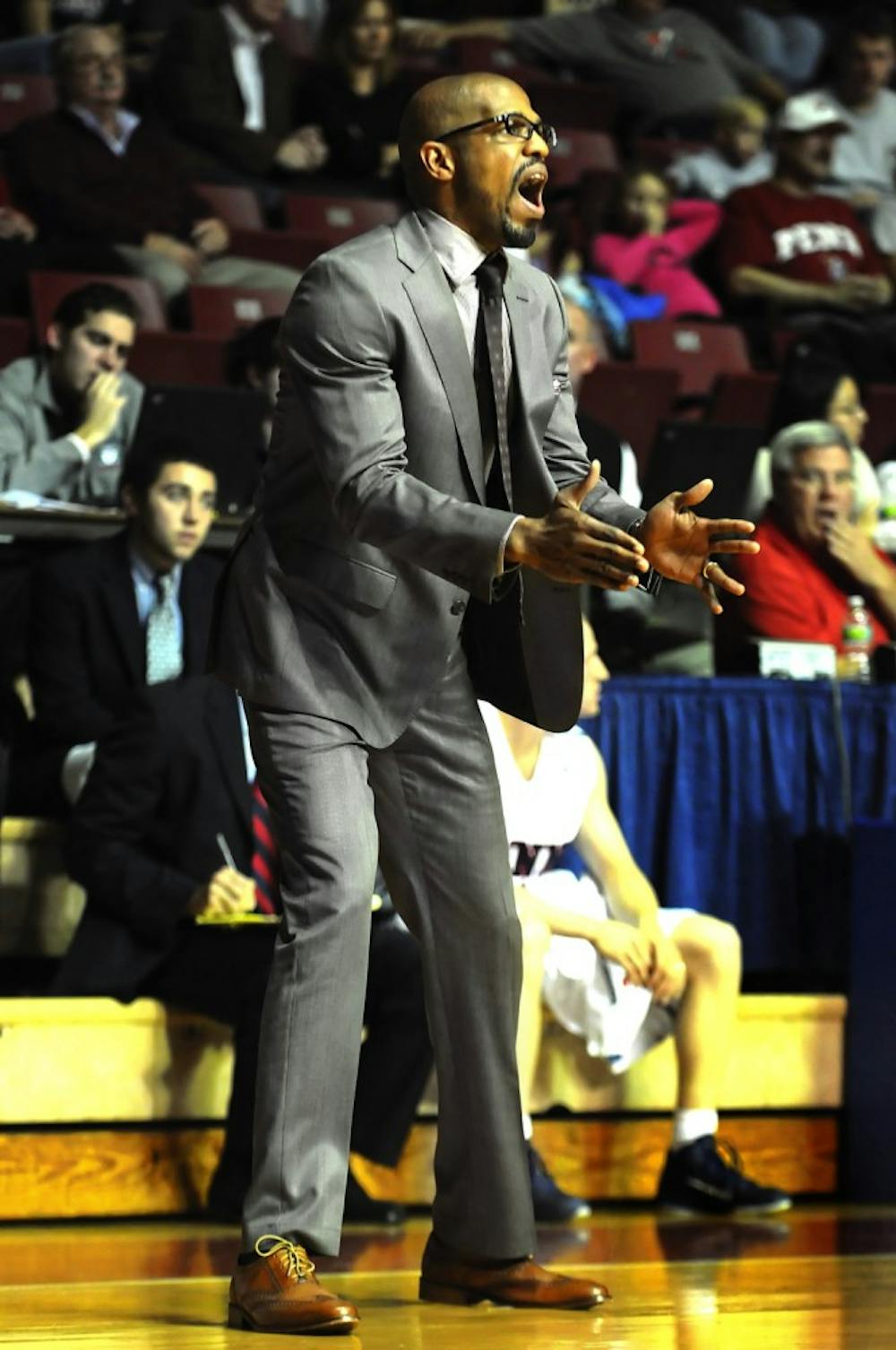
Jerome Allen considers himself something of an educator, an inspirer of young men.
It certainly appeared as such when he inspired the Penn men’s basketball team to rebound from poor shooting in the first half against Army with a terrific second period.
After halftime, the Quakers shot 67 percent from the field, drained 75 percent of their three-point attempts and outscored the Black Knights 40-24.
“I think as coaches, we have to be teachers — when we win and when we lose,” Allen said following the win.
But it certainly didn’t hurt Allen’s no-player-left-behind policy when a few shots started dropping for the Red and Blue.
“I think sometimes it may be easier to teach after a win,” Allen said. “Because you have the guys’ attention.”
At the beginning of the game, it didn’t seem as if the Quakers could buy a bucket.
The Red and Blue were a dismal 1-for-10 from behind the arc in the first 20 minutes. They had trouble moving the ball inside Army’s zone defense, and ended up jacking up difficult treys that kept clanging off the rim.
“We rushed a little bit and just settled for the three in the first half,” Allen said. “We really didn’t try to attack the paint as much.”
But that all changed after halftime.
Suddenly, the Quakers weren’t just getting open shots — they were making them, swishing 6-of-8.
Junior Zack Rosen and freshman Miles Cartwright flew up and down the floor, passing off the rock like a hot potato. The duo combined for nine assists in the game.
Indeed, the terrific spacing the Red and Blue achieved had as much to do with its improved shooting as anything else.
“In the half-court action, I felt like we guarded them,” Army coach Zach Spiker said. “But it was more our ability to get back in transition, where [Rosen] had some freedom.”
Rosen and Cartwright looked free as birds in the second half as senior Jack Eggleston and junior Rob Belcore kept snagging defensive rebounds and kicking the ball out to get the transition offense going.
The two forwards combined for 14 rebounds, 13 on the defensive glass.
Their rebounding allowed the two guards to knife through an adjusting Black Knight defense and find teammates in rhythm for spot-up shot attempts — much different than the contested tries of the first half.
“In the second half, we had the right spacing,” Allen said. “Guys were giving themselves up for the other guys to get opportunities.”
But even in Penn’s fourth win of the young season, a feat that required three months and 19 games last year, Allen sees ample room for improvement, and therefore teaching.
His preferred method?
Socratic.
“Some of the things, you just question mentally,” Allen said. “[And ask] ‘Tell me, what were you thinking?’”
To compete with elite teams — a category Allen diplomatically admitted Army and University of Maryland, Baltimore County do not fall into — the Quakers simply must protect the ball better.
“No disrespect to Army or UMBC,” Allen said. “But when you play this game, when you play against good teams, you can’t turn the ball over [37 times in two games] and expect to come out on the winning side.”
ELI COHEN is a junior philosophy major from Washington, D.C. He can be contacted at dpsports@theDP.com.
The Daily Pennsylvanian is an independent, student-run newspaper. Please consider making a donation to support the coverage that shapes the University. Your generosity ensures a future of strong journalism at Penn.
DonatePlease note All comments are eligible for publication in The Daily Pennsylvanian.








